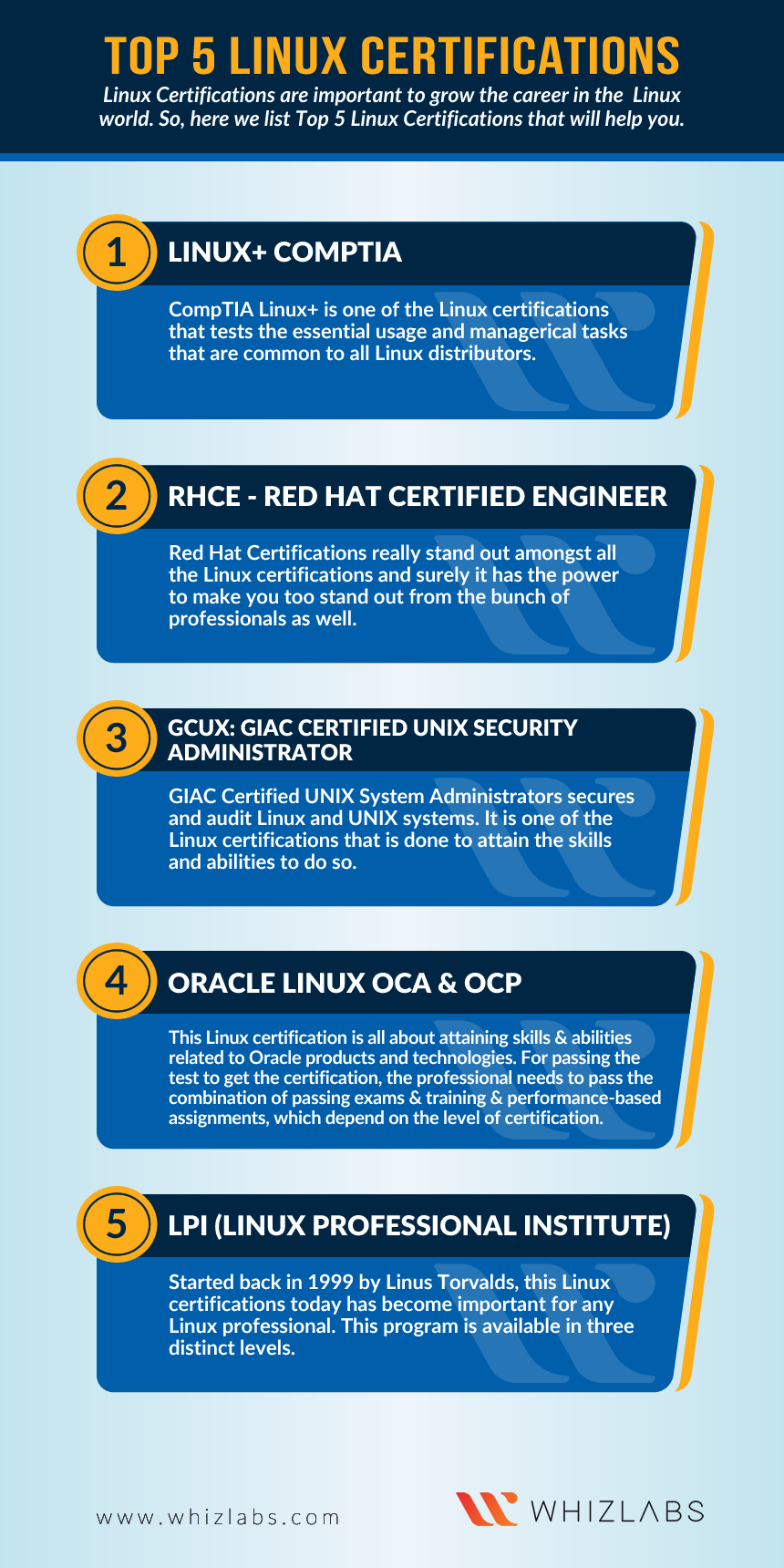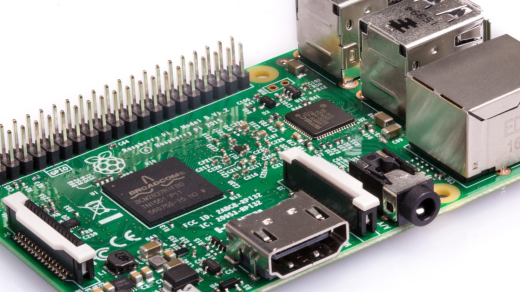Unlock the gateway to limitless possibilities with Linux – the open-source operating system that empowers tech enthusiasts and professionals alike. If you’re eager to embark on a journey of Linux expertise, this article unveils the essential steps to becoming a certified Linux maestro.
CompTIA Linux+
To become certified, you need to pass the CompTIA Linux+ certification exam. This exam covers topics such as system architecture, Linux installation and package management, GNU and Unix commands, devices, Linux filesystems, and more.
To prepare for the exam, you can take Linux training courses offered by organizations like Red Hat, Linux Professional Institute (LPI), Linux Foundation, or O’Reilly. These courses provide comprehensive coverage of Linux concepts and hands-on experience.
Once you obtain the CompTIA Linux+ certification, you can pursue advanced certifications like Red Hat Certified Engineer (RHCE) or Linux Professional Institute Certification (LPIC). These certifications can open up more opportunities in enterprise environments or cloud platforms.
By getting certified in Linux, you can enhance your career prospects and be a valuable asset to any organization in the technology world.

Red Hat Certified System Administrator (RHCSA)
To prepare for the exam, it is recommended to take Linux training courses that cover the topics included in the exam. There are many resources available, such as online courses, books, and practice exams, that can help you study and practice for the certification. Additionally, joining the open source community and gaining hands-on experience in a Linux environment can greatly enhance your skills and knowledge.
By becoming a Red Hat Certified System Administrator, you can open up new opportunities in the technology world, as many organizations are actively seeking professionals with Linux expertise for their IT systems. So, if you’re looking to boost your career in IT, investing in Linux training and obtaining the RHCSA certification is a great way to stand out in the job market.
Oracle Certifications
Oracle offers a range of certifications that cater to different levels of expertise and job roles. For beginners, the Oracle Linux Administrator Certified Associate (OCA) certification is a great starting point. This certification validates your understanding of basic Linux concepts and tasks, such as system administration, installation, and configuration.
If you already have some experience with Linux and want to further expand your knowledge, you can pursue advanced certifications like the Oracle Linux Certified Professional (OCP) and the Oracle Linux Certified Expert (OCE). These certifications focus on more complex topics, such as advanced system administration, performance tuning, and troubleshooting.
To prepare for Oracle’s Linux certifications, you can take advantage of various training resources available. Oracle offers instructor-led training courses, online training modules, and practice exams to help you prepare for the certification exams.
In addition to Oracle’s certifications, there are other industry-recognized certifications that can also enhance your Linux skills and marketability. Some popular certifications include the Linux Professional Institute (LPI) certifications, Red Hat certifications, and Linux Foundation certifications.
Ultimately, obtaining an Oracle Certification in Linux can open up new opportunities for IT professionals in enterprise environments, cloud platforms, and system administration. It demonstrates your expertise and commitment to staying updated with the latest technologies in the Linux ecosystem.
The Linux Professional Institute (LPI) Certifications
The Linux Professional Institute (LPI) offers a range of certifications for IT professionals looking to enhance their proficiency in Linux. These certifications are recognized globally and are highly valued in the industry. The LPI certifications cover various aspects of Linux, including system administration, network administration, and security. Whether you’re a beginner or an experienced professional, there are certifications available to suit your needs.
The certification exams are designed to test your knowledge and skills in Linux administration, performance, and architecture. By obtaining an LPI certification, you can demonstrate your expertise to hiring managers and increase your chances of landing a job in the Linux environment.
Advantages of Linux Certifications
1. Enhanced Job Opportunities: Linux certifications are highly valued in the IT industry, making certified professionals more attractive to hiring managers. These certifications validate your skills and expertise in Linux, increasing your chances of landing a job or advancing your career.
2. Increased Proficiency: Linux certifications provide a structured learning path, helping beginners gain a solid understanding of the Linux operating system. They cover a wide range of topics, including system administration, security, and networking, allowing you to become proficient in various tasks and responsibilities.
3. Recognition in the Industry: Linux certifications are recognized as a standard in the industry, giving you credibility and validation for your skills. Employers often prefer certified professionals as they demonstrate a strong commitment to continuous learning and professional development.
4. Access to the Open Source Community: Linux certifications connect you with the thriving open source community. This community offers a wealth of resources, support, and collaboration opportunities, enabling you to stay up-to-date with the latest trends, methods, and advancements in Linux.
5. Increased Salary Potential: Linux certifications can lead to higher salary potential. Certified professionals often earn more than their non-certified counterparts due to the specialized knowledge and skills they possess.
6. Diverse Career Options: Linux certifications open doors to a wide range of career opportunities. From system administrators and network engineers to data administrators and cloud architects, Linux professionals are in high demand across various industries.
To get certified in Linux, consider enrolling in beginner courses or certification training programs. Some popular Linux certifications include LFCS, LFCE, LPIC-1, and Red Hat certifications. Explore online resources, such as O’Reilly and Kali Linux, to further enhance your skills and knowledge. Remember to prepare for the certification exam thoroughly to increase your chances of success.
Choosing the Right Linux Certification
Choosing the right Linux certification can be a critical decision in advancing your career in IT systems administration. With the popularity of Linux as an operating system (OS) for servers and workloads, having a Linux certification can open up opportunities for jobs in data administration and system administration.
When selecting a certification, consider the needs of your career and the skills you want to develop. The Linux Foundation Certified System Administrator (LFCS) and Certified Engineer (LFCE) exams are a standard for many hiring managers. These certifications validate your skills in Linux administration and are recognized by industry professionals.
If you are a beginner, consider starting with courses like O’Reilly’s “Learning Linux System Administration” or the Linux Professional Institute’s (LPI) Linux Essentials certification. For more advanced professionals, certifications like Red Hat Certified System Administrator (RHCSA) or LPIC-1 are highly regarded.
Ultimately, choose a Linux certification that aligns with your career goals and offers a combination of capabilities that will set you apart in the industry.
Overview of Linux Certification Exams
How to Get Certified in Linux
| Exam | Description | Skills Assessed | Prerequisites |
|---|---|---|---|
| LPIC-1: Linux Administrator | The LPIC-1 certification validates basic Linux administration skills and knowledge. | System architecture, Linux installation and package management, GNU and Unix commands, devices, Linux filesystems, file hierarchy standard, and more. | None |
| CompTIA Linux+ | The CompTIA Linux+ certification demonstrates proficiency as a Linux Administrator. | System configuration, command-line interface, scripting basics, network settings and services, security, and more. | None |
| LPIC-2: Linux Engineer | The LPIC-2 certification verifies advanced Linux administration and networking skills. | Networking configuration, service configuration, system maintenance, storage management, troubleshooting, and more. | LPIC-1 or CompTIA Linux+ |
| Red Hat Certified System Administrator (RHCSA) | The RHCSA certification demonstrates the skills required for system administration in a Red Hat Enterprise Linux environment. | System administration tasks, file systems and partitioning, network services, security, and more. | None |
| Red Hat Certified Engineer (RHCE) | The RHCE certification confirms advanced skills in Red Hat Enterprise Linux system administration. | System configuration and management, network services, virtualization, troubleshooting, and more. | RHCSA or equivalent experience |
Exploring the Linux Kernel
If you’re interested in exploring the Linux kernel and want to become certified in Linux, there are several options available to you. The Linux operating system (OS) has gained popularity in recent years due to its reliability, security, and flexibility. Obtaining a Linux certification can open doors to various career opportunities, such as system administration or data administration. Some popular certification programs include the LFCS and LFCE exams, offered by the Linux Foundation, as well as certifications from Red Hat and LPIC-1. Whether you’re a beginner or already have some experience, there are certification training courses available to suit your needs. Consider a combination of hands-on experience, self-study, and formal training to enhance your capabilities and increase your chances of success in the Linux certification exams.


